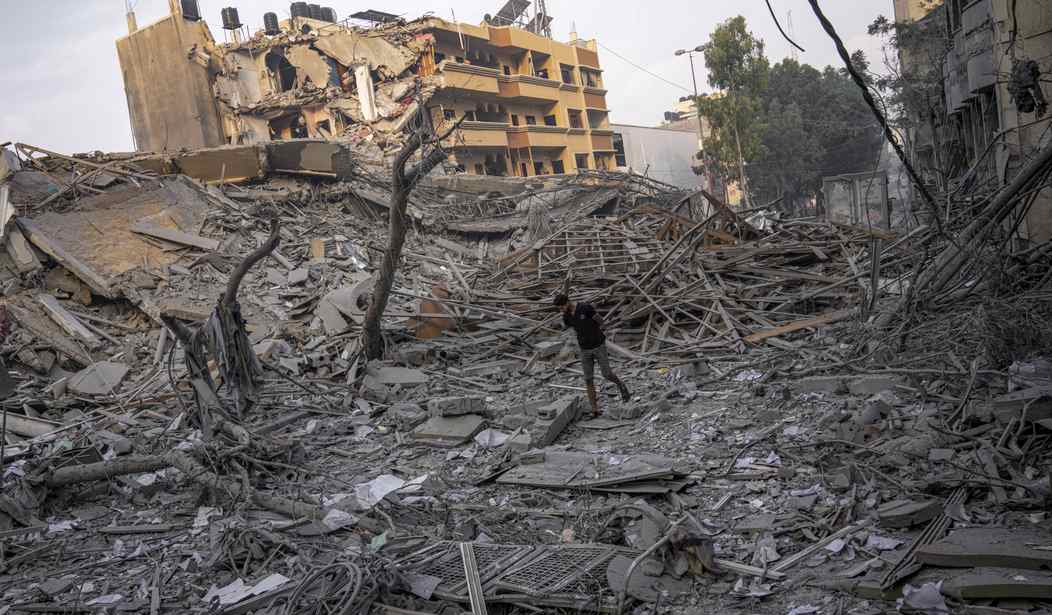There is much talk when it comes to the millennia-old Muslim vs. Jew narrative of “Muslim unity” and “Arab brotherhood” and similar phrases. Entire political movements, in fact, have adopted such mottos as their monikers and rallying cries, the purported purposes of which are to foster a pan-Islamic fraternity across international borders.
Isn’t it peculiar, then, that Egypt is so obviously hesitant to open its borders to Palestinians fleeing Gaza even for temporary refugee resettlement as it is on the verge of annihilation?
Via Reuters (emphasis added):
Egypt has long restricted the flow of Gaza Palestinians onto its territory, even during the fiercest conflicts.
Cairo, a frequent mediator between Israel and the Palestinians, always insists the two sides resolve conflicts within their borders, saying this is the only way Palestinians can secure their right to statehood.
One of the Egyptian security sources, who asked not to be identified, told Reuters news agency that Egypt rejected the idea of safe corridors for civilians to protect “the right of Palestinians to hold on to their cause and their land”…
Several Arab states still have camps for Palestinian refugees who are descendants of those who fled or left their homes during the war surrounding Israel’s 1948 creation.
The Palestinians and other Arab states have said a final peace deal needs to include the right of those refugees to return, a move Israel has always rejected.
The inconvenient fact for “Muslim brotherhood” is that Palestinians and other refugees from war-torn countries in the Middle East are despised as a nuisance and shunned by neighboring states. At best, they are corralled into permanent refugee camps and kept in perpetuity as non-citizens until something can be done with them. At worst, they are ignored and often allowed to die.
Or else they are passed on to the West.
Related: Germany: Gang Rapes Hit Record High, Up to Half Committed by Migrants
And what about the Iraq Wars, the original and 2.0, and the ensuing rise of ISIS, which together displaced millions of refugees across Iraq and Syria? Neighboring states, once again, shuttered their borders and bickered about numbers.
Via International Committee of the Red Cross:
In early 2003, UNHCR estimated a total of more than 30,000 Iraqis in Syria, while more than 250,000 were estimated to be in Jordan. At the time of the 1991 Gulf War, Jordan was the only country that accepted Iraqis. Since that time it is believed that the population of Iraqis in Jordan has never gone below 130,000. According to a recent survey by the Danish Refugee Council/UNHCR in Lebanon, 30 per cent of respondents arrived prior to 2003. According to the Brookings Report commissioned by UNHCR on Syrian refugees, two waves of Iraqi refugees have come to Syria over the past 25 years. The first wave came in the 1970s and 1980s; many of those refugees were Sunnis who opposed the Saddam Hussein regime, while others were Shia fleeing persecution. Following the first Gulf War and the Iraqi government’s repression of Shia in the south, the Syria–Iraq border remained closed throughout the 1990s and only reopened in 2001–2.
Bear in mind that oil-rich countries like Saudi Arabia, the UAE, and Qatar have among the highest per-capita GDPs in the world. There is nearly no limit to the humanitarian aid they could provide to their “brothers” were they so inclined.










